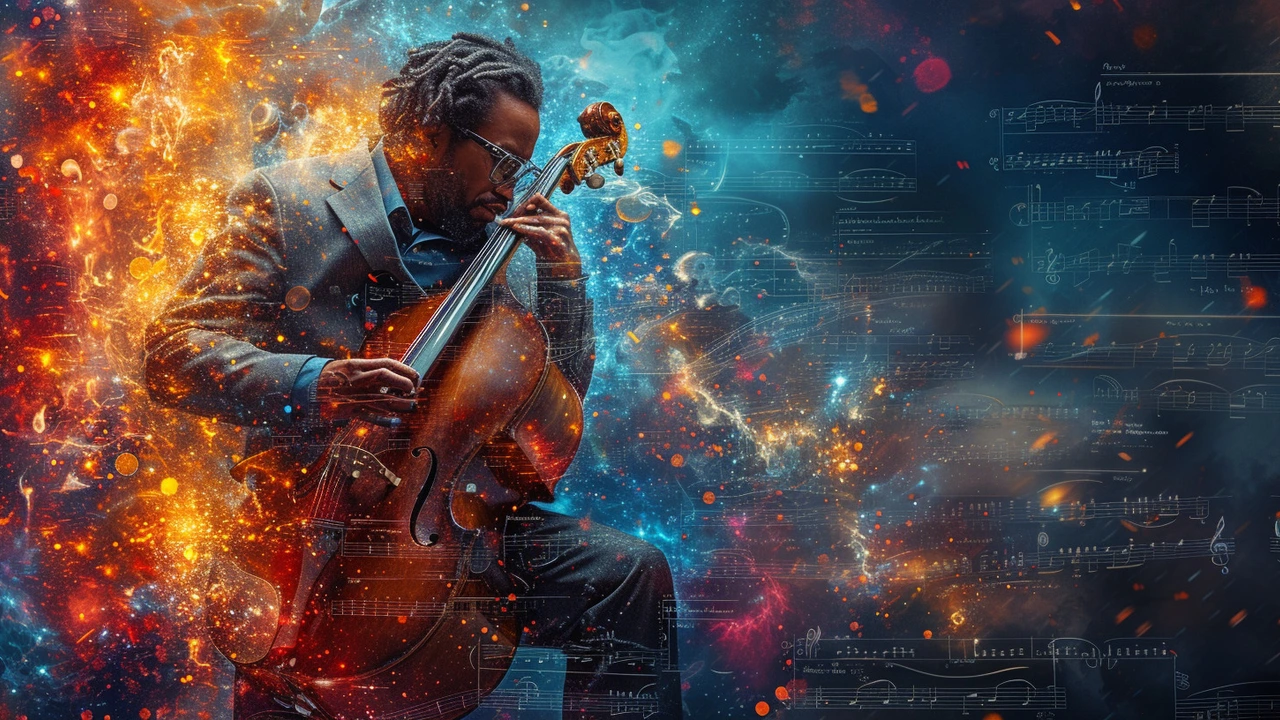The Societal Symphony: Music Genres Around Us
Imagine walking into a room filled with invisible paintbrushes, each one singing a different sociocultural tale. This is precisely the dialogue that music genres establish globally, reflecting the dynamics of societal changes.
From my beautifully chaotic, coffee-scented little nook in Melbourne, I've had the good fortune to witness firsthand the fluid dance of society and music. Strangely, this ongoing relay between both entities reminds me of my Australian Shepherd, Max, and my Siamese Cat, Lily, always chasing each other's tails around the house. They may seem entirely different, yet they coexist as elements of the household, just as contrasting music genres coexist in society.
The Musical Fresco: Relevance of Music Genres
Now Vivaldi's violin concertos or Led Zeppelin's hard rock may not be your top Spotify choices, but each played a pivotal role in echoing the pulse of their era. Genres are like the unique brush strokes of a giant societal fresco. Their relevance goes beyond mere classification of similar sounds. We are talking about an omnipresent entity that shapes our collective mood, influences our fashion, morphs the fabric of culture and even interferes with politics.
For example, no one can forget the role of folk music during the Vietnam War or how hip-hop mirrored the struggle in African-American communities. The surreal evolution of music genres in tandem with society is kind of like the first sip of my morning coffee – it wakes your senses and yet smoothly complements the comforting silence of dawn.
Music as Social Narrative: A Walk Through History
Genre evolution tells a historical narrative, encapsulating the essence of significant periods, much like time capsules filled with beats. And if you think music is just about entertainment, my friend, that's like saying the Great Barrier Reef is just another pretty coral reef.
Let's rewind to the classical era, a period of elegance, balance, and harmony. The music mirrored genteel society values. Fast forward to the 20th century, blues and jazz genres struck chords of racial and socio-economic struggles, issues that were predominant back then. The birth of rock and roll in the 1950s represented a declaration of rebellion against societal norms. When the hippie counterculture took center stage in the 1960s and 70s, psychedelic and folk-rock bloomed. Fast forward again to recent years, the rise of pop and electronic music clearly reflects our ever-evolving digital society.
Genres as Socio-Cultural Mirrors
Genres don't just pop up overnight. They are born out of a society’s emotional state and reflections surrounding cultural, political, and technological landscapes. Be it the fiery vibrance of Latin music representing the rich cultural heritage of Latin countries, or the haunting melodies of folk music capturing the narratives of ordinary people, everything intertwines.
If genres were humans, they would be the most empathetic lot, encapsulating human experiences, emotions, struggles, joys, and aspirations. They grow, evolve, disappear and reappear like societal sentiments. So you see, labeling music into genres is not just a way to manage our iTunes library; it's akin to walking through a museum of societal history and evolution.
Genres Influencing Personal Identity and Lifestyle
I believe music plays a role in shaping our identity too; it has for me, definitely. I still remember how as a rebellious teenager, I embraced the grunge genre, and suddenly my wardrobe mimicked that of Kurt Cobain. Isn't it fascinating how music carries an immense power influencing personal growth, shaping societal values, and dictating lifestyle trends? It's like being gently influenced by unseen hands, leading us on a unique journey.
In the world of fashion, the impact of music genres is undeniable. Case in point: the punk style inspired by punk rock, the 'Hippie look', the 'Grunge look', the 'Rapper style', and many more. Moreover, certain music genres have contributed significantly to the growth of certain industries such as music festivals, vinyl productions, guitar shops, and more.
A Personal Tapestry: My Life's Soundtrack
As someone who grew up in a house that echoed with the sounds of classic rock, rhythm and blues, classical music, and yes, even country music, I can testify to the profound influence of music genres. Each genre symbolized a phase in my life; the rock reflected youthful rebellion, the blues showcased mature understanding, the classical music represented the sacred wisdom and so on.
Fascinatingly, while each genre stood for something unique, they all harmoniously blended into the symphony of my life. I believe it's the same with society; every music genre leaves an imprint on us, helping us understand, accept and deal with societal phenomena. It's like a huge Masonic code, a music Da Vinci Code, if you will! And just as Max and Lily intermingle in their playful display, each genre glazes, overlaps and intermingles to create our personal and societal tapestry.
Music is a melody of life and societal change, and I am here, in my sprawling Melbourne abode - Max and Lily by my feet, a cup of coffee in my hand, navigating that symphony, listening to the society's history through the genres dancing around us. After all, aren't we all entwined in this grand symphony of life?
